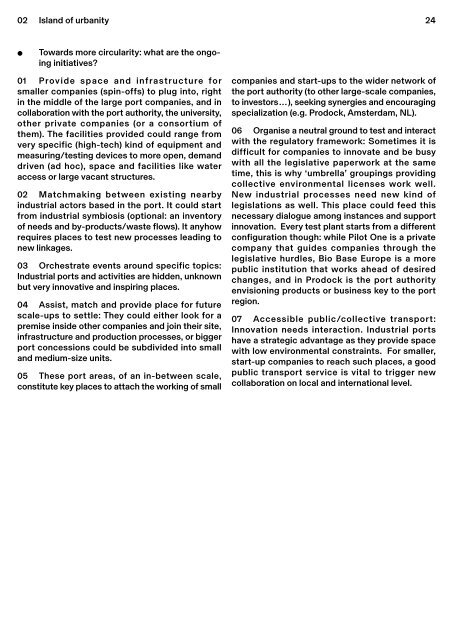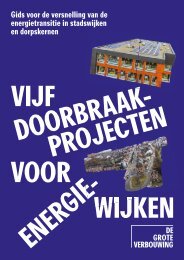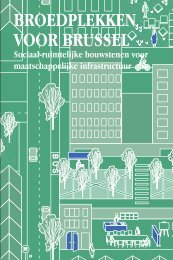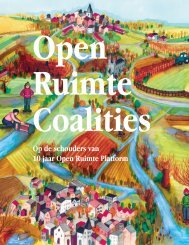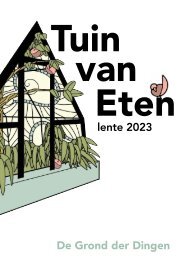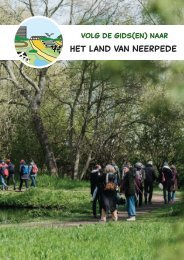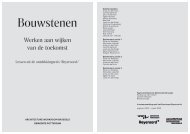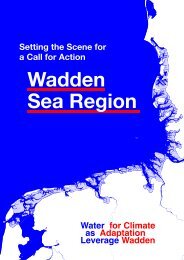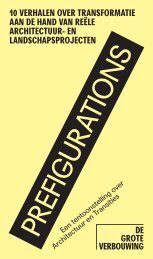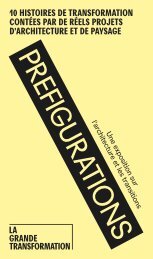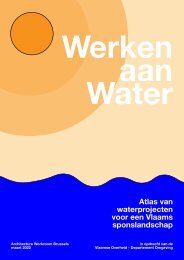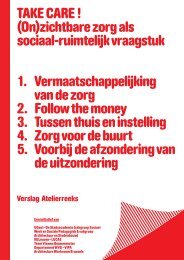Circular (City) Ports_Workbook 2_ Buildings Blocks
Create successful ePaper yourself
Turn your PDF publications into a flip-book with our unique Google optimized e-Paper software.
02 Island of urbanity<br />
24<br />
●<br />
Towards more circularity: what are the ongoing<br />
initiatives?<br />
01 Provide space and infrastructure for<br />
smaller companies (spin-offs) to plug into, right<br />
in the middle of the large port companies, and in<br />
collaboration with the port authority, the university,<br />
other private companies (or a consortium of<br />
them). The facilities provided could range from<br />
very specific (high-tech) kind of equipment and<br />
measuring/testing devices to more open, demand<br />
driven (ad hoc), space and facilities like water<br />
access or large vacant structures.<br />
02 Matchmaking between existing nearby<br />
industrial actors based in the port. It could start<br />
from industrial symbiosis (optional: an inventory<br />
of needs and by-products/waste flows). It anyhow<br />
requires places to test new processes leading to<br />
new linkages.<br />
03 Orchestrate events around specific topics:<br />
Industrial ports and activities are hidden, unknown<br />
but very innovative and inspiring places.<br />
04 Assist, match and provide place for future<br />
scale-ups to settle: They could either look for a<br />
premise inside other companies and join their site,<br />
infrastructure and production processes, or bigger<br />
port concessions could be subdivided into small<br />
and medium-size units.<br />
05 These port areas, of an in-between scale,<br />
constitute key places to attach the working of small<br />
companies and start-ups to the wider network of<br />
the port authority (to other large-scale companies,<br />
to investors…), seeking synergies and encouraging<br />
specialization (e.g. Prodock, Amsterdam, NL).<br />
06 Organise a neutral ground to test and interact<br />
with the regulatory framework: Sometimes it is<br />
difficult for companies to innovate and be busy<br />
with all the legislative paperwork at the same<br />
time, this is why ‘umbrella’ groupings providing<br />
collective environmental licenses work well.<br />
New industrial processes need new kind of<br />
legislations as well. This place could feed this<br />
necessary dialogue among instances and support<br />
innovation. Every test plant starts from a different<br />
configuration though: while Pilot One is a private<br />
company that guides companies through the<br />
legislative hurdles, Bio Base Europe is a more<br />
public institution that works ahead of desired<br />
changes, and in Prodock is the port authority<br />
envisioning products or business key to the port<br />
region.<br />
07 Accessible public/collective transport:<br />
Innovation needs interaction. Industrial ports<br />
have a strategic advantage as they provide space<br />
with low environmental constraints. For smaller,<br />
start-up companies to reach such places, a good<br />
public transport service is vital to trigger new<br />
collaboration on local and international level.


